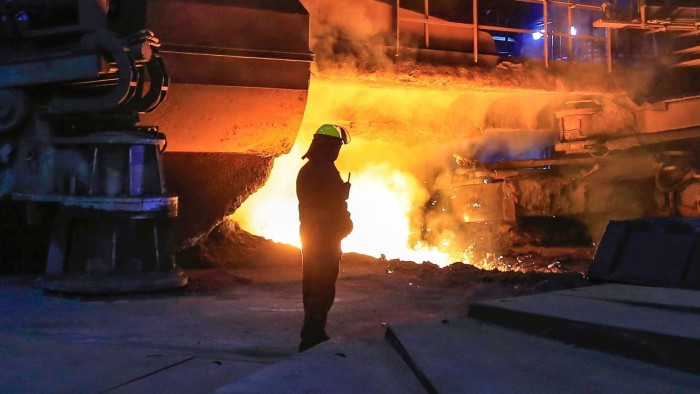Unlock the Editor’s Digest for free
Roula Khalaf, Editor of the FT, selects her favourite stories in this weekly newsletter.
The Chinese owner of British Steel has rejected a £500mn lifeline offer from the UK government, raising fears about thousands of jobs at the steelmaker.
A letter sent by the government to Jingye on Monday had offered the money to sustain the business and help it switch to greener production, following almost two years of rescue talks between UK officials and the company.
However, Jingye sent a letter to the government on Wednesday in which it turned down the approach, according to people familiar with the situation.
Trade unions fear the company, which employs 4,000 people at sites including its flagship Scunthorpe plant in Lincolnshire, could start consultations on redundancies as early as Thursday.
Sarah Jones, energy minister, told the House of Commons business committee on Wednesday the offer had been rejected, but the government was “still very much talking to British Steel, every day”.
Jones said there was “no deadline” on the talks with the company.
British Steel did not immediately respond to a request for comment.
The business operates at Scunthorpe the last two blast furnaces in the UK after Indian-owned Tata Steel closed its final one at Port Talbot, south Wales, in September.
Ministers had hoped to replicate a deal they struck last year with Tata Steel in which they provided £500mn of taxpayer support to help the company switch to greener steelmaking.
The government has committed as much as £2.5bn towards the steel industry to help it reduce its carbon footprint and meet the UK’s net zero targets by 2050.
Unions last month put forward a plan to keep open the British Steel blast furnaces until two less carbon-intensive electric arc equivalents were operational.
Unions have been concerned the rapid closure of the blast furnaces will result in the loss of up to 2,000 jobs.
As part of the plan, however, unions wanted the government to provide an extra £200mn to help mitigate the expected carbon costs associated with keeping the blast furnaces running.
Union expectations of a higher government offer to Jingye last week were dashed after the Treasury rebuffed pleas for more money, according to two people familiar with the situation.
Jones told MPs that the government’s preference would be for the blast furnaces at Scunthorpe to keep going at least temporarily.
Liam Byrne, Labour chair of the business committee, said it was “deeply troubling news”.
“At a time of war in Europe, rising global tension, and economic uncertainty, we need more resilience, not less . . . we need blast furnace steel made here by us, for us,” he added.
“Ministers must now answer and answer fast: if not this deal then what? If not now, then when? And if not here, then where will we make the steel Britain still needs?”



